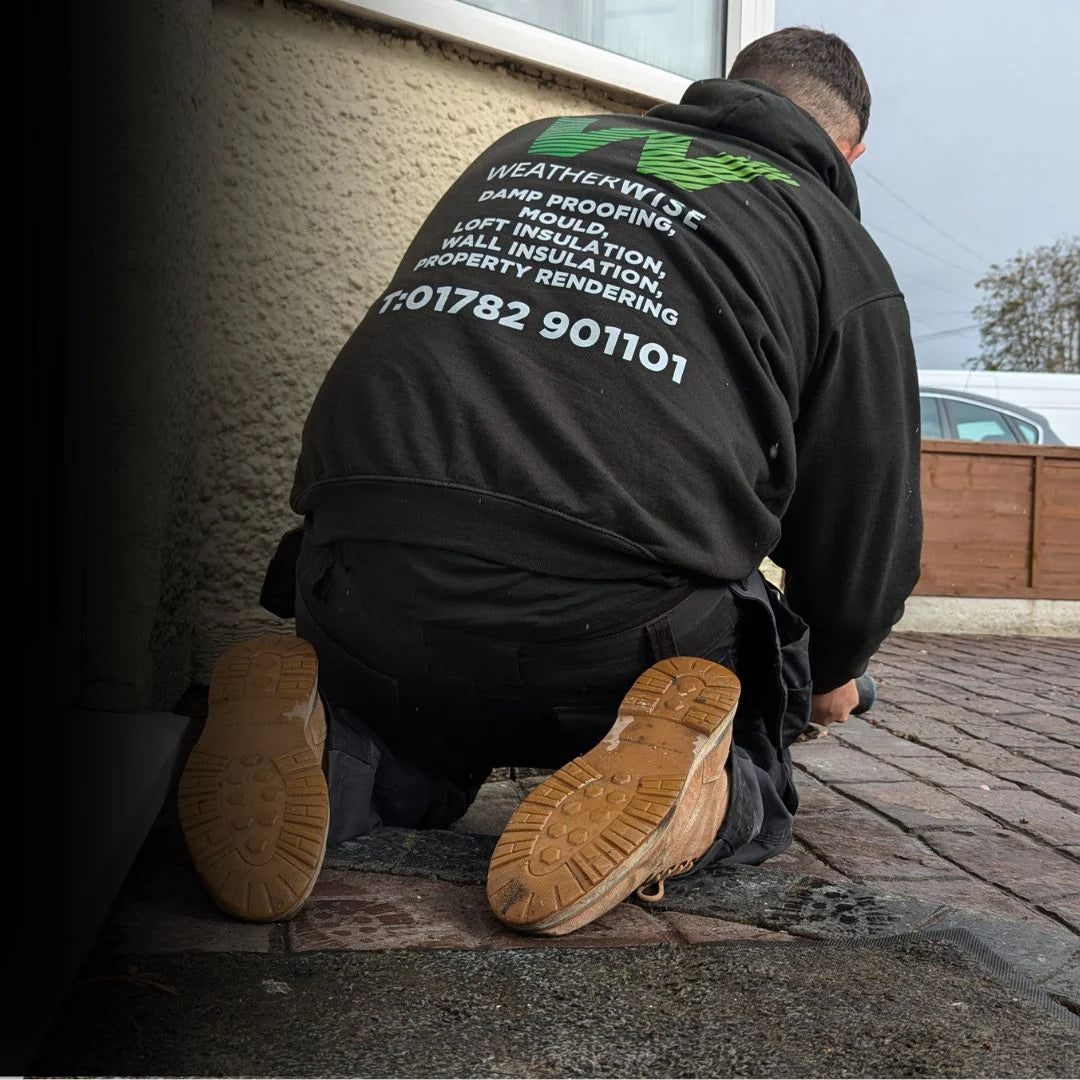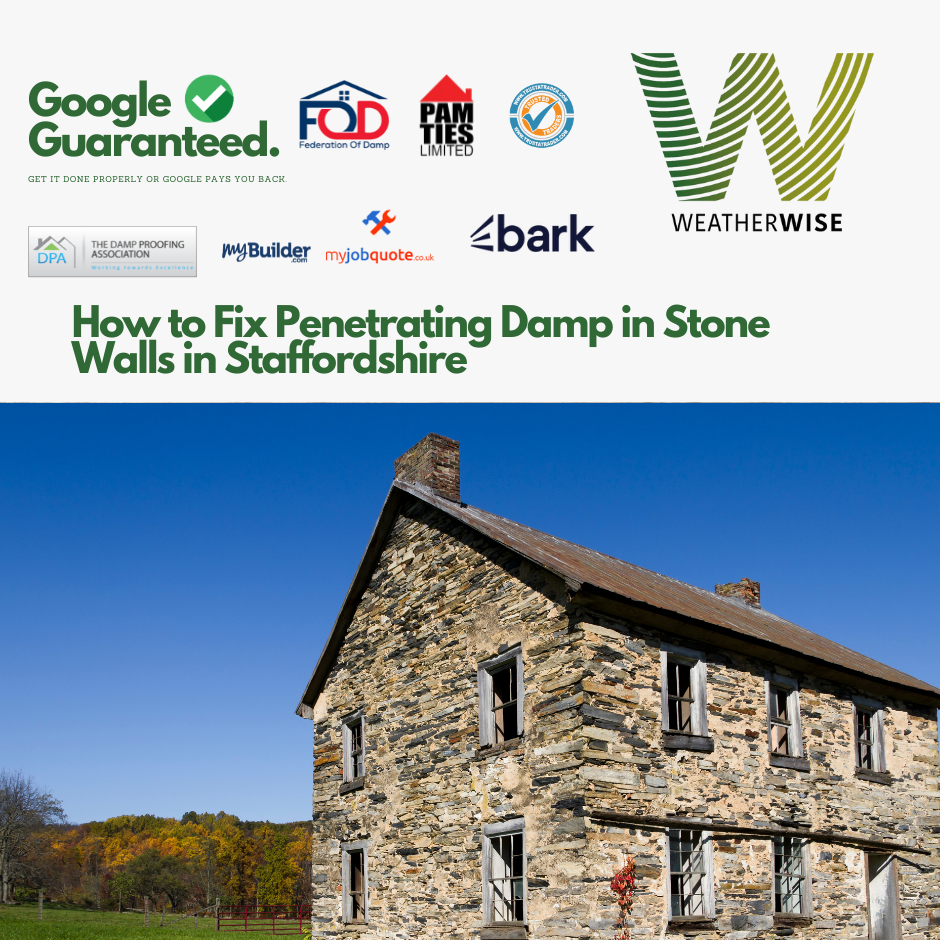Older stone-built homes across Staffordshire often face a common issue: penetrating damp. Unlike condensation or rising damp, this type of moisture enters laterally through the walls, particularly during prolonged wet weather. If left untreated, it can lead to internal damp patches, plaster damage, and mould growth. In this blog, we’ll explain how to identify penetrating damp in stone walls and the best ways to fix it using breathable materials that preserve the building’s character.
What Causes Penetrating Damp in Stone Walls?
Penetrating damp typically occurs due to:
-
Cracked or missing mortar joints
-
Porous stone or spalled masonry
-
Blocked or broken rainwater goods (gutters and downpipes)
-
Defective pointing or render
-
Inappropriate modern materials that trap moisture
In Staffordshire’s older homes, especially in rural areas, traditional lime-based mortars and breathable masonry were originally designed to allow walls to manage moisture naturally. Introducing modern, impermeable materials can trap water inside the structure, making damp worse.
Signs of Penetrating Damp
Common indicators include:
-
Localised damp patches on internal walls, particularly during or after rain
-
Peeling paint or bubbling plaster
-
Efflorescence (white salts) on internal or external walls
-
Moss or algae growth on exterior masonry
These symptoms are often most noticeable on windward elevations, where driving rain hits the building most frequently.
Best Treatment Methods for Stone Walls
Repairing penetrating damp in stone walls requires a sympathetic approach using materials that complement the original construction.
1. Repointing with Lime Mortar
Removing cement-based mortar and repointing with a natural hydraulic lime (NHL) allows the wall to breathe and shed moisture effectively.
2. Installing a Clear, Breathable Wall Coating
PAM Ties offers breathable water-repellent coatings specifically designed for heritage properties. These penetrate the stone surface, forming a vapour-permeable barrier that repels rainwater without trapping moisture.
3. Improving Rainwater Management
Ensure gutters, downpipes, and drainage around the property are working correctly and diverting water away from the building fabric.
4. Inspect Flashings and Roof Junctions
Chimneys, wall abutments, and roof valleys should be checked for cracks or gaps where water may be entering.
Avoiding Common Mistakes
-
Do not seal stonework with cement render or non-breathable paint.
-
Avoid tanking systems that trap moisture in the wall core.
-
Don’t ignore small signs—penetrating damp often gets worse gradually.
Need Advice? Speak to a Specialist
Weather Wise Solutions Limited are staff and family-run damp specialists serving Staffordshire, with experience in treating penetrating damp in stone and traditional buildings. We use approved breathable systems and work in line with best practices set by the Damp Proofing Association.
📞 Want peace of mind? Book a Free Survey for Your Home here



